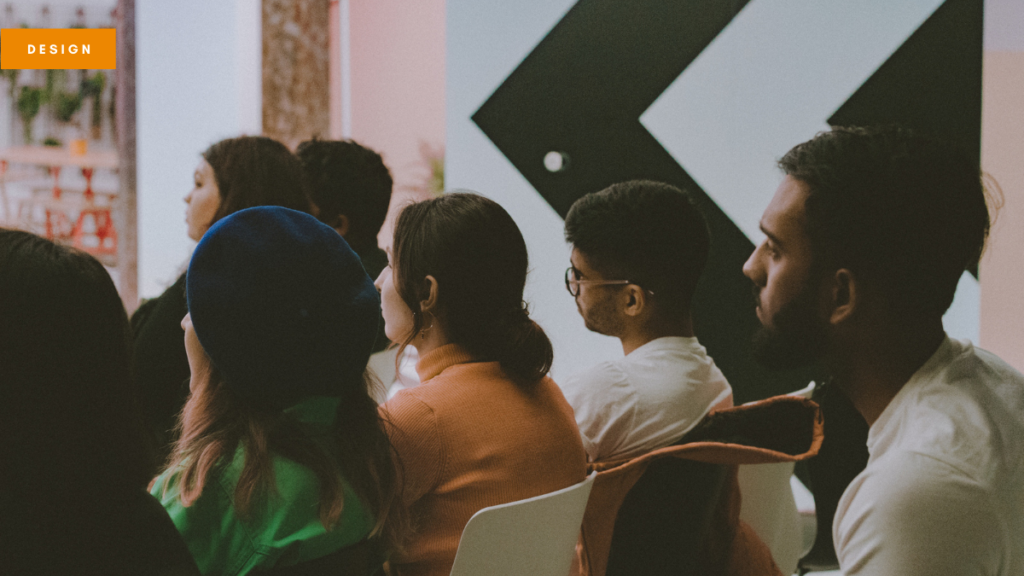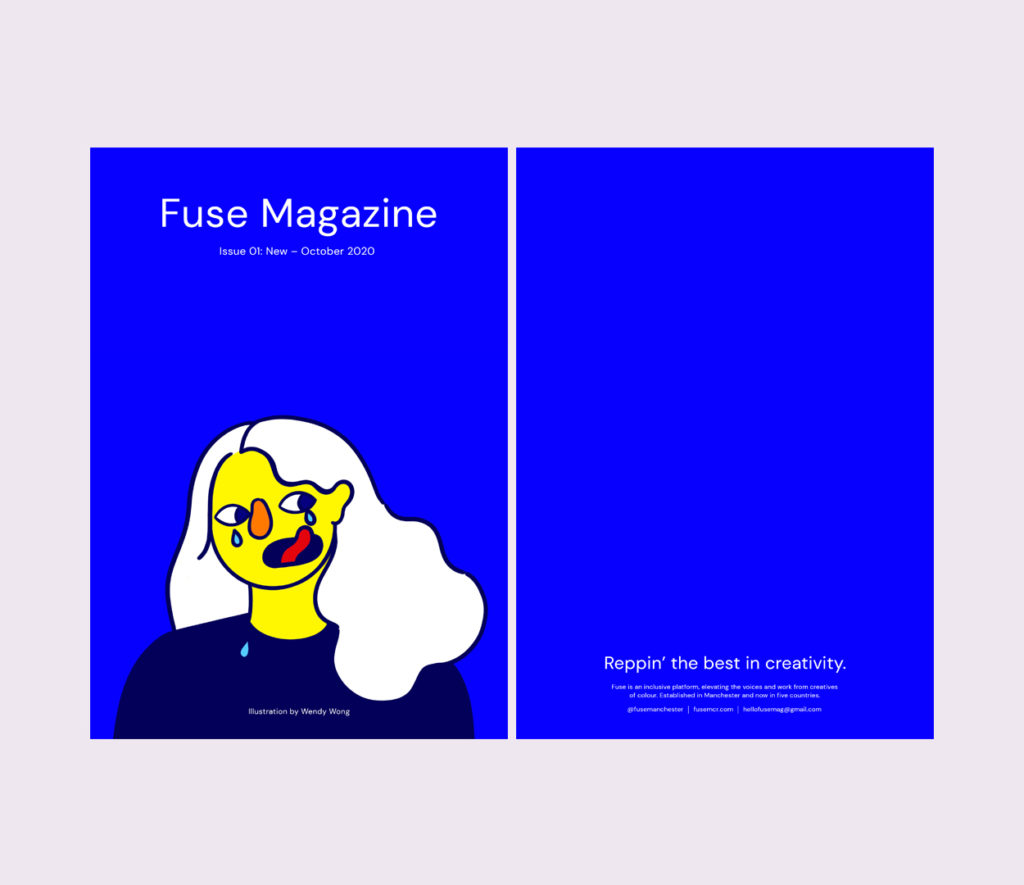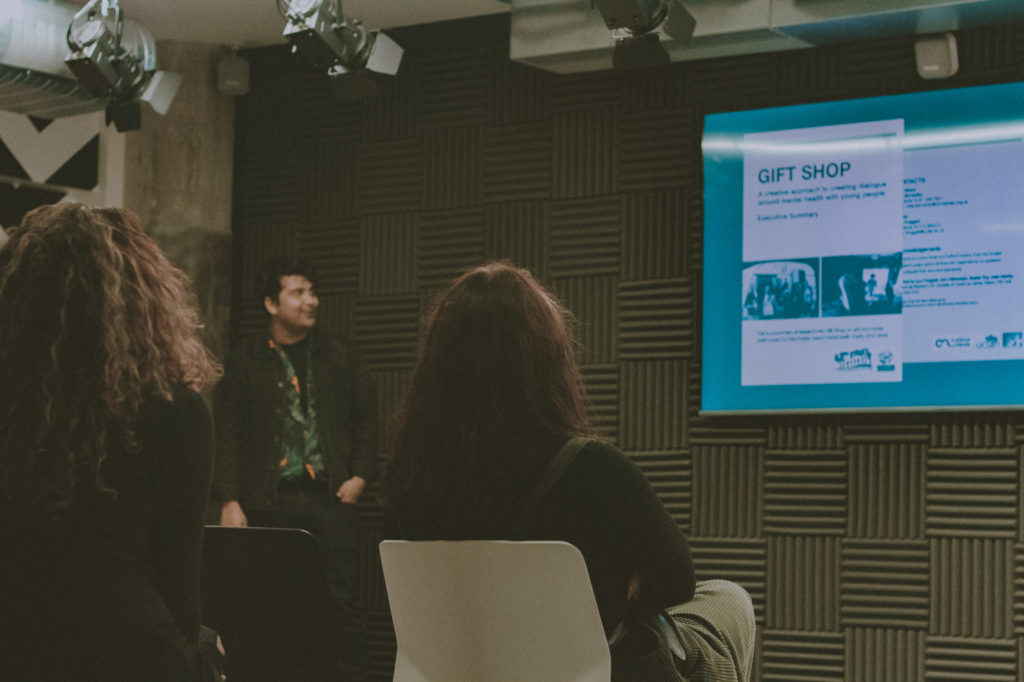Creating a community for creatives of colour: Interview with Jaheed Hussain, founder of Fuse

After reading a recent article in DesignWeek, entitled ‘Can the design industry’s diversity problem be fixed?’, we approached Jaheed Hussain, who contributed to that piece, to find out more about the Fuse community of BIPOC creatives which he founded in Greater Manchester, and which has since spread around the world.
What is Fuse, and what led you to create it?
Fuse is a creative platform, elevating the work and voices from creatives of colour. Through the platform, Fuse hosts a local chapter of BIPOC creatives in Greater Manchester, posts daily content on social media, has resources and articles to read, makes events and has a digital magazine series. Plus, Fuse now has ten chapters across five countries including Berlin, Birmingham, Chicago in Illinois and Barcelona, with amazing hosts doing the same things. I began the platform at the end of my studies at University as my final-year project (Salford University, studying Graphic Design) upon learning about the lack of conversation around diversity and generally feeling like an imposter throughout my creative education path. I didn’t feel like anyone of colour had been represented enough within what we all claim to be a progressive industry and specifically in Graphic Design. After researching and talking with tutors and peers, many felt the same way but there weren’t really any other platforms, other than Fresh Magazine, localised to combat it within Manchester.

How well do you think the design industry represents BIPOC designers at the moment? Did the summer of BLM protests feel like a significant moment of change in the UK?
It definitely did, it massively impacted those in the creative industry and in the months after the change of conversations – organisations in and outside of Manchester started to showcase, talk about and discover BIPOC creatives and designers. Right now, it’s still showing its effects with the biggest media platforms highlighting brilliant work and people, all of whom are from different backgrounds. I think it’s going to continue and hopefully become a more organic system when it comes to talking about and writing about people’s work.
Your work is focused on the Greater Manchester area; what are the advantages to being based outside London?
I’ve only ever visited London a few times and it had been before I knew what I wanted to do, so I don’t know how tight-knit the creative community is over there. In Greater Manchester, it feels like everyone knows everyone else and it translates within events (now digital ones) and social media, where people start to connect from all parts of the area. I think it’s a massive advantage when it comes to discovering people to collaborate with. For Fuse it’s made it easier to grow that directory list.

How has Covid-19 affected the activities of Fuse? Do you think some of the impacts of the pandemic have actually been positive in terms of geographical diversity and increased remote working?
Oh for sure. A week before the first lockdown here in the UK, Fuse hosted its last in-person event at Huckletree in Ancoats. Usually, I’d plan for around three or so events within the calendar year but unfortunately couldn’t. On the flipside, there have been huge positives because more people have connected with the platform digitally. Like you asked, the geographical scope became global with almost everyone in the world having to stay at home and spend more time online. It’s boosted the growth, along with the conversations surrounding Black Lives Matter, helping the platform get to where it is now.

What achievements are you proudest of, and where do you see Fuse going next?
As a whole I’m super proud of where it’s at now. It only began as the website and directory (having around 30 creatives on there). One of the stats I love to share is this: between the year it began – April 2019 to the end of December 2019 – Fuse’s site only had around 2,500 visits. From the beginning of 2020 to now, it’s had over 118,000 visits. It’s a bit crazy to think that so many people have been on the website and absorbed its contents. Next year, I’m hoping to collaborate more with other organisations and build on what’s being done already. Hopefully with more chapters too!
Fuse is a creative platform, elevating the work and voices from creatives of colour – founded by Jaheed Hussain in April 2019, Manchester. Along with its local directory list of creatives, the platform hosts events, has articles and resources to read, a digital magazine series and chapters across the world.
If you’d like to look for your local chapter and get involved head to: fusemcr.com/chapters.
If you’d like to start your own chapter, please email fusedirectory@gmail.com. (Requirements: Identify as a person of colour.)
If you’d like to get involved with the magazine series, email hellofusemag@gmail.com
Manchester links: @fusemanchester / fusemcr.com.





